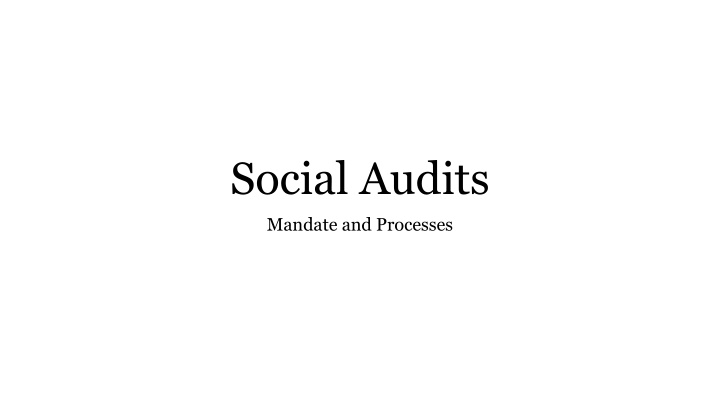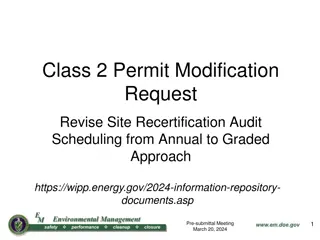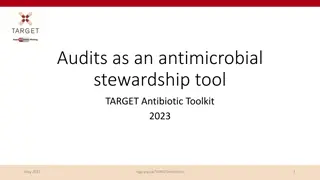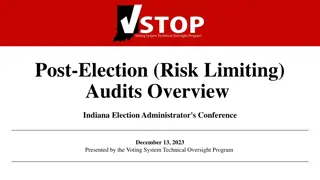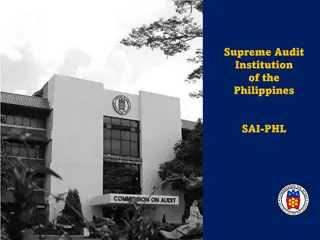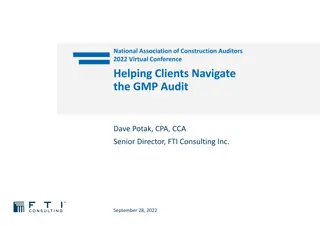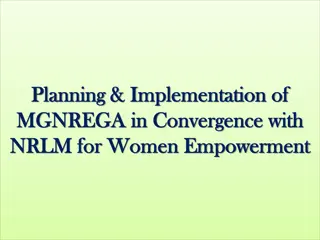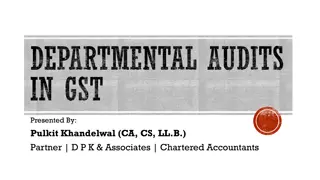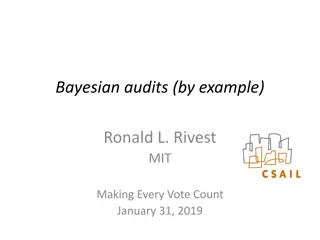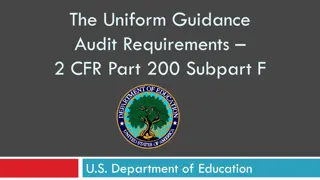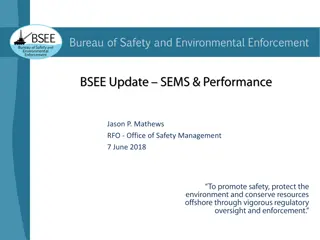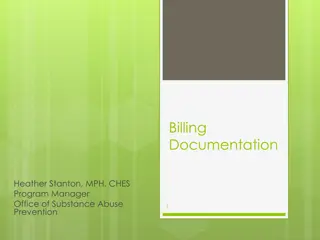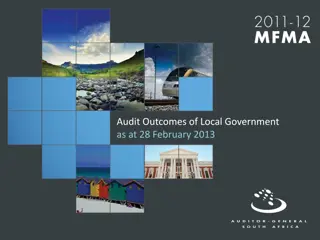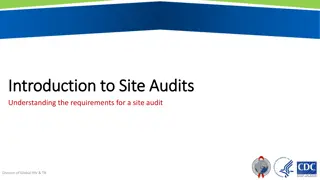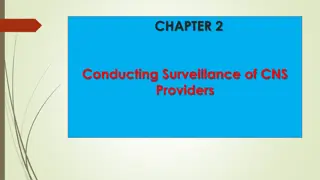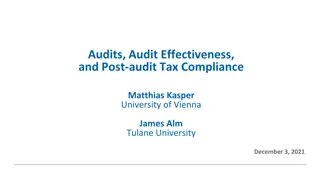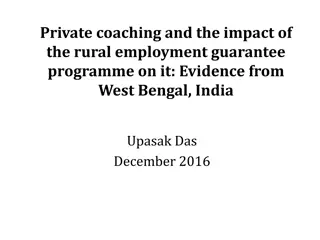Guidelines for Social Audits under MGNREGA
The legal mandate for social audits under MGNREGA includes the requirement for conducting audits by Gram Sabhas, setting up independent Social Audit Units, and involving Village Social Audit Facilitators. The process involves collating records, conducting beneficiary and work verification, and presenting findings in public Gram Sabhas. Key steps include full access to information, dissemination, and time-bound follow-up on audit outcomes. Additionally, State Governments must establish independent Social Audit Units for effective implementation.
Download Presentation

Please find below an Image/Link to download the presentation.
The content on the website is provided AS IS for your information and personal use only. It may not be sold, licensed, or shared on other websites without obtaining consent from the author.If you encounter any issues during the download, it is possible that the publisher has removed the file from their server.
You are allowed to download the files provided on this website for personal or commercial use, subject to the condition that they are used lawfully. All files are the property of their respective owners.
The content on the website is provided AS IS for your information and personal use only. It may not be sold, licensed, or shared on other websites without obtaining consent from the author.
E N D
Presentation Transcript
Social Audits Mandate and Processes
Legal Mandate for Social Audits (SA) under MGNREGA Audit of Scheme Rules, 2011 drafted in consultation with the C&AG that mandate the following: SAs to be conducted by Gram Sabha SAs of works taken up under the Act in every Gram Panchayat at least once in 6 months Setting up of a Social Audit Unit that is independent from the implementing agency to facilitate conduct of social audits Unit to develop a calendar at the beginning of the year for roll out of SAs, in consultation with State Governments Identification of Village Social Audit Facilitators from families of MGNREGA workers to facilitate social audit Provision of records to SA team 15 days prior to the Gram Sabha
SA team to collate records and conduct 100% door to door beneficiary and work verification Social Audit Gram Sabha (cannot be chaired by anyone involved in implementation) where findings of social audit verification are read out in public and deviations recorded Social Audit Gram Sabha open to all citizens and to be attended by Implementing Agencies State Government responsible to take follow up action on findings of the social audit SA report to be forwarded to C&AG and Central Government by the State Central Government to lay SA Report in each House of Parliament Costs of social audit met by Central Government
Key Steps in the SA Process Identify scope of audit Full access to all information prior to social audit, with enough time for assimilation and verification Dissemination of information Social Audit Gram Sabha: Obligation on officials to be present and answer queries Social Audit outcomes to have legally sanctioned implications Time bound follow up on grievances/irregularities identified in social audit
Social Audit Unit State Government to set up a Social Audit Unit that is independent from the implementing authorities: - Not located in the Department that is implementing MGNREGA - Has an independent bank account - Has a full time Director who is not involved in the implementation of MGNREGA
Calendar for Social Audit SAU to frame a calendar for how social audits will be rolled out in all/selected Gram Panchayats of the State Calendar communicated to all District Programme Coordinators ofr provision of records and notification of the Gram Sabha
Non negotiables of the Social Audit Process Conducted with the youth from stakeholder households (not by Govt officials) Trained in reading records (role of facilitators) Furnishing records in full shape (Govt to take action against officials who do not share records) Non-interference by Govt in the process (only enable, protect) Govt to take action on the recommendations and submit action taken reports
Essential elements- social audit forum Convening Periodicity Presiding Quorum Participation Presenting information Taking decisions Recording Follow up
